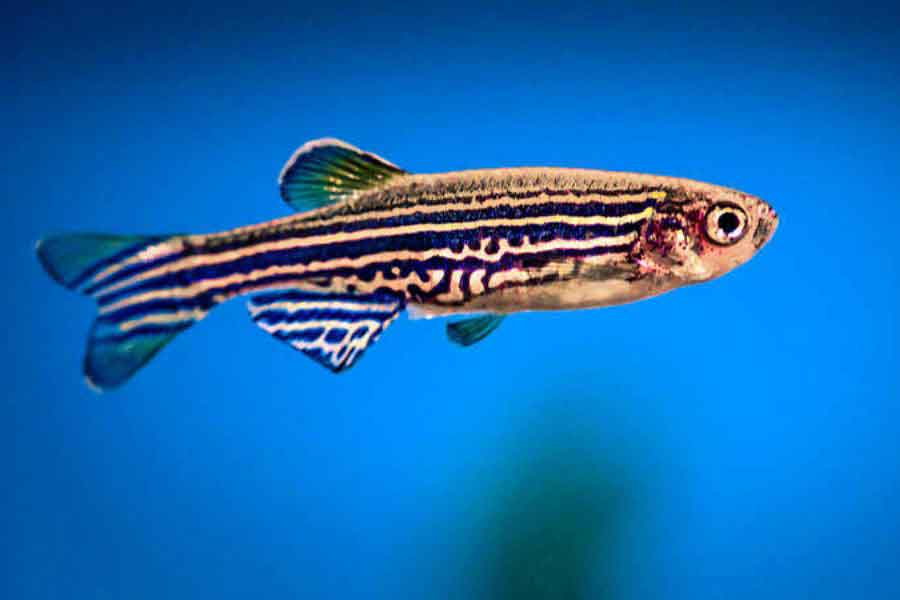
Perhaps the aspect that concerns naturalists the most nowadays is the genetic manipulation of animals. The protests from ecological groups clash directly with the arguments of producers who claim that, when used properly, genetic manipulation will help improve the quality of food for human consumption. Thus, we find ourselves today with visually perfect fruits that are more durable and tomatoes that resist frost.
But it seems that technological advancements fall under the influence of trends, reaching not only ridiculous but also dangerous extremes. Recently, the Taikong company from Taiwan, in collaboration with various official organizations of the Republic of China, has launched a new fish that glows in the dark into the aquarium market.
This is the zebrafish or «Medaka,» an Asian freshwater variety to which jellyfish genes were added to give it a yellowish-green fluorescent color. The newly created oviparous fish was named TK-1 and is expected to be an unprecedented success among aquarium enthusiasts, with its commercial launch taking place in Great Britain. Meanwhile, the Institute of Zoology at the National Taiwan University assures that this fish will not be dangerous to the environment as it is sterile and will live in permanent captivity.
However, let’s suppose that an English girl, enamored with her fish, decides to release them into a river near her house. Due to their fluorescence, it is likely that the normal predators of that river would choose not to eat them. But besides, genes do not act in isolation, and their modification to add fluorescence can trigger changes in other genes. Changes that we may not be able to control. In the realm of assumptions, many things can happen: they may become new and unexpected predators of other fish and plants – it has already happened with carp – the fish may easily adapt to saltwater and leave the river, or they may even find a way to reproduce. We don’t know; genes from this fish have never been mixed with jellyfish genes before.
Be that as it may, no conscious person can deny technological progress. However, this technology should be applied for the benefit of humanity and for improving the quality of life on our planet, rather than being used for a senseless and potentially dangerous fashion. We cannot deny the benefits of fire, but playing with it is unnecessary and risky; those who do only end up getting burned. Chernobyl should have taught us that the best-laid plans fail, and when some of these plans fail, humanity is at risk.
Meanwhile, a small luminous fish looks at the fragile world from its fish tank, perhaps not a cause for concern. But it may signify the first of a long list of modified fish. Experiments that lead us to question, once again, whether humans are truly the intelligent animals on this planet.
«You cannot defend what you do not love, and you cannot love what you do not know.»

